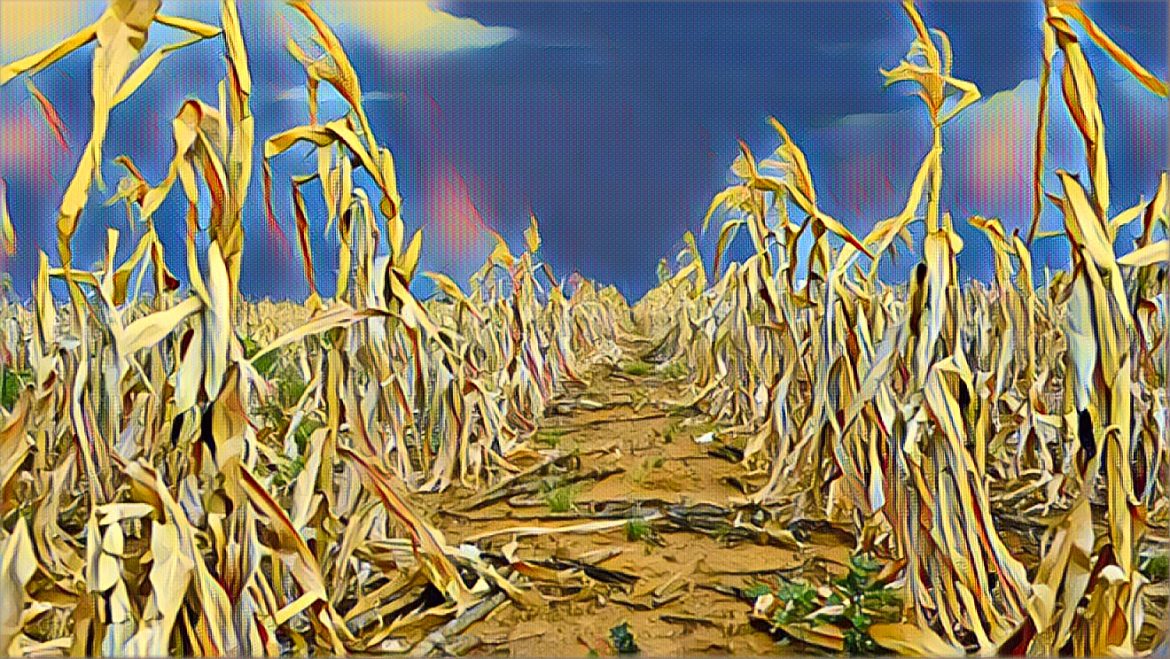In the heart of southern Africa, a severe drought has unleashed a devastating wave of hunger, affecting millions across the region, including the Mangwe district in southwestern Zimbabwe. Amid the parched landscapes and desolate fields, farmer James Tshuma stands as a testament to the harsh realities facing agricultural communities. With crops failing and food supplies dwindling, the situation has escalated into a dire humanitarian crisis, compelling international aid organizations to intervene.
On a day marked both by urgency and somber realization, Zanyiwe Ncube, alongside her 7-month-old son, joined the queue at a food distribution center in rural Zimbabwe. The center, supported by the United States government through USAID and implemented by the United Nations’ World Food Programme (WFP), represents a lifeline for those grappling with the consequences of climate-induced scarcity. As Ncube carefully measured her portion of cooking oil, the undercurrent of distress was palpable. The announcement that this distribution would be the last only deepened the community’s sense of vulnerability.
The drought, described as the worst in decades, has ravaged large swathes of southern Africa since late 2023. Zimbabwe, along with neighboring Zambia and Malawi, bears the brunt of this environmental catastrophe. The erratic weather patterns, swinging violently between floods and droughts, underscore the region’s vulnerability to climate change. Last year’s tropical storms, which brought deadly floods, have given way to an unforgiving dry spell, crippling the agricultural sector upon which millions depend for their livelihoods and sustenance.
In Zimbabwe alone, an estimated 2.7 million rural inhabitants face the specter of hunger. The drought has decimated crops, leaving families without food and pushing communities to the brink. Zambia and Malawi have declared national disasters, signaling the gravity of the crisis that now threatens to envelop Botswana, Angola, Mozambique, and Madagascar.
The phenomenon driving this drought is El Niño, a climatic event characterized by the warming of Pacific Ocean waters, which disrupts global weather patterns. In southern Africa, El Niño typically results in reduced rainfall, exacerbating drought conditions. This year’s El Niño, coupled with the inherent challenges of managing water resources in arid regions like Mangwe, has resulted in a catastrophic failure of both staple and drought-resistant crops.
The World Food Programme’s country director for Zimbabwe, Francesca Erdelmann, highlighted the unprecedented nature of the current crisis, emphasizing that the situation surpasses mere seasonal hardships. Communities that would normally be harvesting now find their fields barren, with no prospects for replenishment on the horizon.
The distribution event in Mangwe, therefore, represented more than just a temporary reprieve; it was a stark reminder of the ongoing struggle against hunger in the face of environmental adversity. Joseph Nleya, a 77-year-old traditional leader, lamented the dire conditions, noting the absence of water, the scarcity of wild fruits, and the increasing desperation of his people. The drought has not only decimated local food sources but has also compelled individuals to cross borders in search of sustenance, blurring the lines between survival and legality.
The alarm raised by various aid agencies last year now resonates with greater urgency. Heads of state in the affected countries have called for international assistance, with Malawi seeking $200 million in humanitarian aid. The grim reality is that the anticipated harvests will not materialize, leaving millions across Zimbabwe, southern Malawi, Mozambique, and Madagascar in a protracted state of food insecurity well into 2025.
Despite the dire projections, the response capacity of humanitarian organizations is strained by a global hunger crisis and diminishing funding from government sources. The World Food Programme’s operations in Mangwe, while critical, cannot fully address the scale of need. As Ncube contemplates the dwindling supplies, her concerns underscore the broader challenge facing southern Africa: the relentless march of climate change and the urgent need for sustained, comprehensive interventions to mitigate its impacts and safeguard the most vulnerable communities against future crises.


